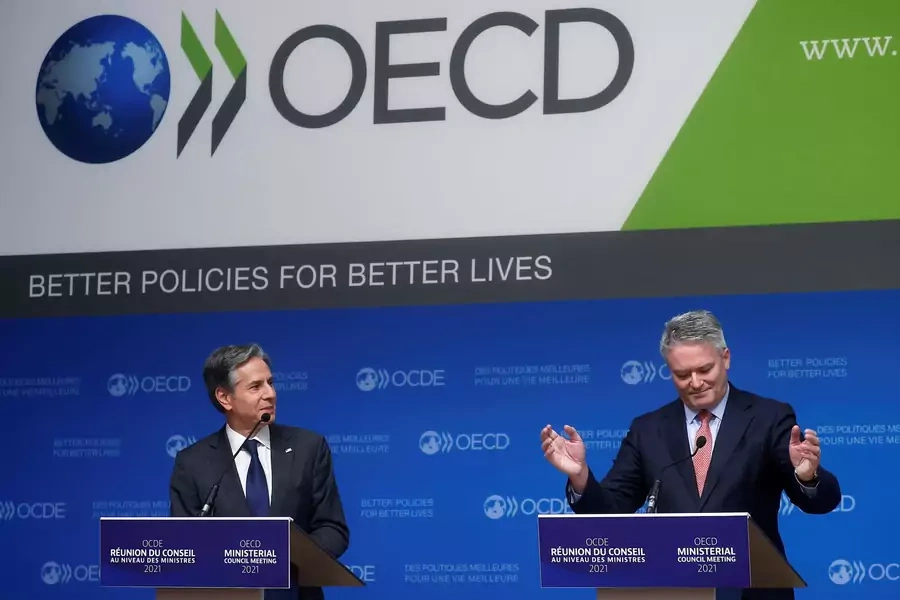Stalling Progress on Global Minimum Tax

More on:
Last fall 136 nations, collectively accounting for over 90 percent of the global economy, signed onto the OECD/G20 inclusive framework on base erosion and profit sharing (BEPS), a two-pillar solution to address digitalization of the economy and corporate tax avoidance. Pillar one seeks to reallocate rights to tax large multinationals from their home countries to market jurisdictions. The rules would apply to companies with global revenues over €20 billion ($22.7 billion). It would reallocate taxation of 25 percent of their profits that is over 10 percent of their revenue from their home countries to countries where they have sales. Pillar two is aimed at ensuring that corporations around the world pay an effective minimum tax rate of 15 percent. The tax floor of 15 percent would apply to multinational firms with revenues above €750 million (around $868 million) globally. If these companies shift profits to a “low-tax” country, they would face a “top up” tax in their home country to effectively pay up the difference to get to the 15 percent minimum. The landmark agreement was a culmination of years of painstaking negotiations between countries, and heralded as a triumph for multilateralism and for the Biden administration, which had revived negotiations for it. There was an initial sense of optimism that countries would quickly codify the necessary laws domestically in time for the OECD goal of implementation by 2023. U.S. Treasury Secretary Janet Yellen expressed confidence that Congress would approve legislation to bring the United States into compliance with the agreement via the budget reconciliation process as a part of President Biden’s proposed Build Back Better agenda. Last December, the OECD published its model rules designed to implement pillar two of the agreement. A couple of days later, the European Commission followed suit with a proposal for a directive to implement these rules in all member states. Last month, The United Arab Emirates announced that it would introduce a 9 percent tax rate on corporate profits. Despite these steps, however, the hopefulness of a few months ago has been replaced by a sense of increasing uncertainty as the momentum for implementation has stalled on both sides of the Atlantic. France has pushed EU countries to enact their own corporate minimum tax rules to bring them into compliance with global minimum tax rules, but passing these laws is complicated in the EU since tax laws require unanimous support from all 27 member countries and any single country could throw a wrench into the process. Countries like Estonia, Poland, and Hungary have called for safeguards to ensure progress on rights to tax digital multinationals, pillar one of the agreement, in addition to the minimum tax. During the negotiations, European countries had prioritized the question of digital taxation, while the United States had prioritized the global minimum rate. Some European countries are wary of giving up their leverage by moving too fast on the American priority of a minimum tax without making sufficient progress on digital taxation. These issues have made the OECD target of 2023 implementation difficult to meet for European countries. Meanwhile, progress toward implementation is even more uncertain in the United States, where President Joe Biden’s ambitious spending plans, which were supposed to include legislation to bring the U.S. in compliance with the agreement, have stalled in Congress. If President Biden’s Democratic party loses control of one or both houses of Congress in the midterm elections this fall, the agreement’s prospects will be even more dim. If policymakers in both Europe and the United States do not find a way to lay the groundwork for the implementation of both pillars of the agreement in their respective countries, the best opportunity in decades at international corporate taxation reform will be wasted in yet another embarrassing, if not entirely unsurprising, blow to multilateralism.
More on:
 Online Store
Online Store